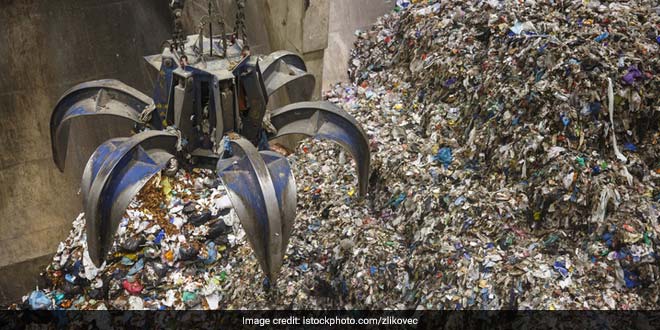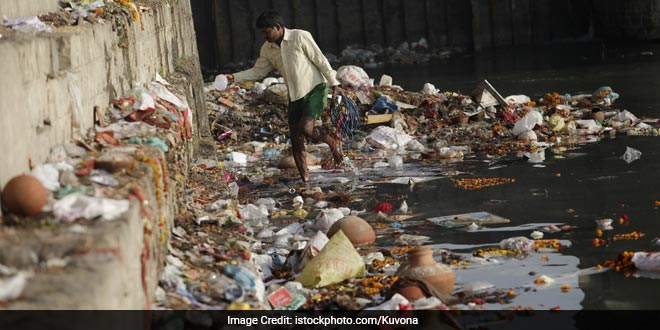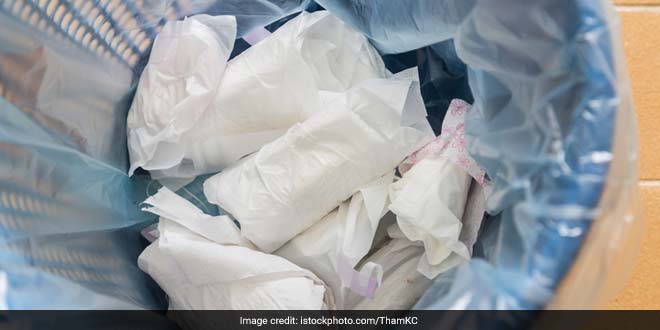Believe it or not, over 1 billion non compostable sanitary pads are making their way to urban sewerage systems, and landfills, rural fields and water bodies in India every month. Not only do these products take some 100 years to decompose completely, but, can lead to health and environmental hazards. Apart from disposal issues, the process of manufacturing these disposables also pollute our waterways, air and animal habitats. Switching to reusable menstrual products can make a difference. Today, when the market is flooded with non-biodegradable sanitary napkins, it becomes incumbent on everyone to atleast try out options that will not further deplete our environment.
Switching to reusables is a striking example of how small personal choices can have a big positive impact on our environment. There are many players in the market currently who are selling eco-friendly products, but, unfortunately their use is undermined by limited awareness and availability. It may not be feasible for everyone to dispose their sanitary waste at home effectively, but, even just by segregating the waste could help save the environment. Here are five reasons why you should make this green switch on priority:
Also Read: An Urgent Challenge: Why India Needs To Tackle Its Menstrual Waste
1. A Constant Increase In Menstrual Waste But No System Of Waste Disposal in Place: India is a developing country, every month around 353 million women and adolescent girls across India are using sanitary products and generating menstrual waste, and this number is growing with each passing day. Highlighting this fact, Arundati Muralidharan, Manager-Policy from WaterAid, said, “One of the most positive aspect we are seeing now that almost 40% girls and women have access to sanitary napkins, but, alongside that, there is an issue of large amount of waste being generated. So, how is India dealing with all this? Currently, in India, we don’t have any proper waste disposal system in place when it comes to menstrual products. Now, that’s an issue.”
1 billion sanitary waste is being generated in one month and one sanitary pads takes around 100 years to decompose completely. The end result is that all this waste on a daily basis is being added into the landfills which are already way past its age limit and are overflowing breaching every limit.
Also Read: A Simple Red Dot On Your Menstrual Waste Can Change A Sanitation Worker’s Life

Every month around 353 million women and adolescent girls across India uses sanitary products and generate enormous amount of menstrual waste
2. No Disposal System Leads To Usage Of Products In An Unsafe Way: Through various studies and research reports on Menstrual Hygiene System in India, it is being observed that when girls and women don’t have facilities for proper disposal of menstrual waste then they tend to use so called safe and hygienic products in an unsafe way – they use a sanitary napkin for more than 12 hours, as opposed to recommended 4-5 hours, which should not be done.
Ms Arundati added, “If we want to deal with the problem of both mounting menstrual waste and for a girl’s own health, we should be looking at eco-friendly or reusable options that can solve these issues to large extent.”
3. Non-Disposable Sanitary Napkins Are Bad For Health And The Environment: A sanitary napkin is made up of wood pulp, chlorine bleach which is used to whiten the pulp for aesthetic reasons, and releases toxic chemicals as a by-product. The toxins produced are dioxin and furan which are cancer-causing materials and can in combination with other by-products pollute rivers and the environment. Not only that, it, also remains in human bodies for decades and can cause side effects like allergic reactions, hormone disruption, reproductive and gynecological disorders like endometriosis.
Another major problem is that menstrual blood on napkins stagnates for longer duration that accumulates a lot of bacteria such as Escherichia coli, which rapidly multiplies at an exponential rate. And, it is apparent that heaps of sanitary napkins can be a breeding ground for disease causing bacteria and are a significant threat to the hygiene of the surrounding areas.

Believe it or not, 1 billion sanitary waste is being generated in one month and one sanitary pads takes around 100 years to decompose completely
4. Disposal Of Sanitary Napkins – A Nightmare For Ragpickers: The waste-pickers are the ones who segregate the biodegradable and non-biodegradable waste for us. Ragpickers don’t use face-masks or gloves, this means they are vulnerable to various microorganisms that thrive in sanitary napkins. They are exposed to diseases like hepatitis and tetanus which are caused by E coli, Salmonella, Staphylococcus and pathogens, which are all present in that small plastic and non-disposing pad.
5. India’s Ever-growing Landfills – Sanitary Waste Adding Up To The Problem: India’s landfills are bursting like anything and overflowing with items that should have been treated in the first place. More than 70% of recyclable urban waste that is collected is dumped straight into the landfills without any treatment. As a result most of them are brimming and are way past their limit. Menstrual waste is just adding on to this problem given the fact that it is being generated at an alarming rate and is dangerously impacting the environment.
The need of the hour is to actively campaign and educate people about the ill-effects of using non-disposable sanitary napkins and voice-out against mass-produced, plastic-based napkins that are not just a matter of grievous concern for the environment but also personal health of women.
Also Read: Sanitary Pads With A Difference: How Project Baala Is Empowering Rural Women

























seena
June 5, 2017 at 10:43 am
where do v get eco friendly products, quality of one’s, any TV ad shows it? Thank you
Hebda
July 11, 2017 at 10:44 am
Are you kidding? What about the billions of tons of plastic that is entering the landfills from single use packaging and containers and cups that line every single street and sidewalk? Pollution is not gender biased, it is a global problem that consists of MUCH more than womens hygiene products. This article is biased and in some parts down right false, stop brainwashing with propaganda like this and encourage EVERYONE, including MEN, to take responsibility for the amount of garbage filling the streets and waterways.